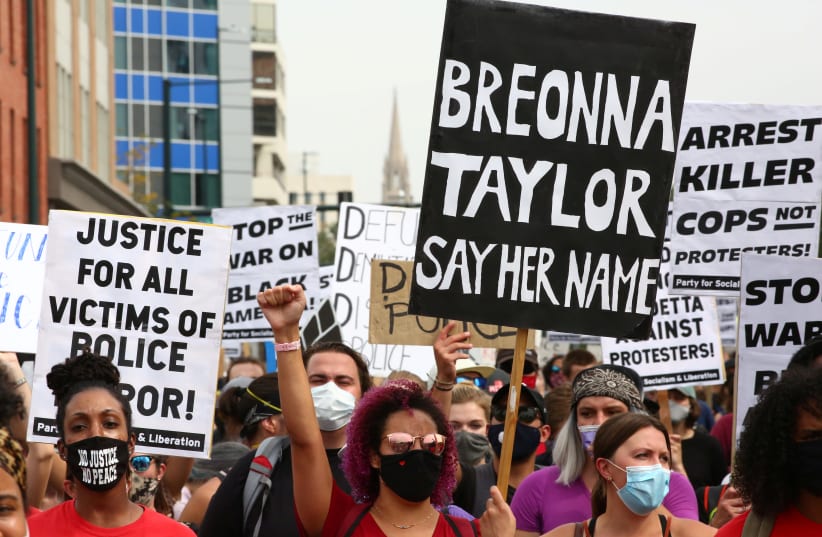Kentucky's attorney general on Friday will release a recording of the grand jury proceedings that cleared three policemen of homicide charges in the death of Breonna Taylor, an outcome that triggered an outcry as an example of racial injustice.
Attorney General Daniel Cameron faces a 12 p.m. (1600 GMT) deadline to enter more than 20 hours of recordings in the court file. The release will give the public a rare peek at the inner workings of a grand jury, which is normally kept secret.
Cameron revealed in a Louisville television interview on Tuesday that he recommended no homicide charges to the jury, and only the single charge of wanton endangerment against one of the three officers that resulted from the proceedings.
The Taylor family has won a $12 million wrongful death settlement from the city of Louisville but still asked for the evidence to be made public, questioning whether Cameron sought to shield the officers from criminal liability.
Prosecutors have wide leeway in how to present evidence to a grand jury, which then decides whether to bring charges. Nine of the 12 grand jurors must agree on a charge in order to return an indictment.
Hollywood celebrities and professional athletes have supported street protests demanding justice for Taylor, 26, a Black emergency medical technician who was shot dead by white Louisville police officers who burst into her home executing a search warrant on March 13.
As the botched raid unfolded, Taylor's boyfriend, Kenneth Walker, fired once at what he said he believed was a criminal intrusion, wounding one officer. Three officers responded with 32 rounds, six of which hit Taylor.
The two officers who shot Taylor were cleared after Cameron determined the shooting was justified. The third was charged with endangerment after firing shots that went into a neighboring apartment.
The Jefferson County Circuit Court will make the 2-1/2 days of recordings available to the media as soon as they are filed and processed, a court clerk said.
The Kentucky governor, Louisville's mayor and even a member of the grand jury itself had called for the proceedings to be released, increasing the pressure on Cameron, a Black Republican whom President Donald Trump has praised as a rising star.
In the end it was the judge overseeing the criminal case of the officer charged with wanton endangerment who ordered the recordings to be entered in the court file, making them public.
